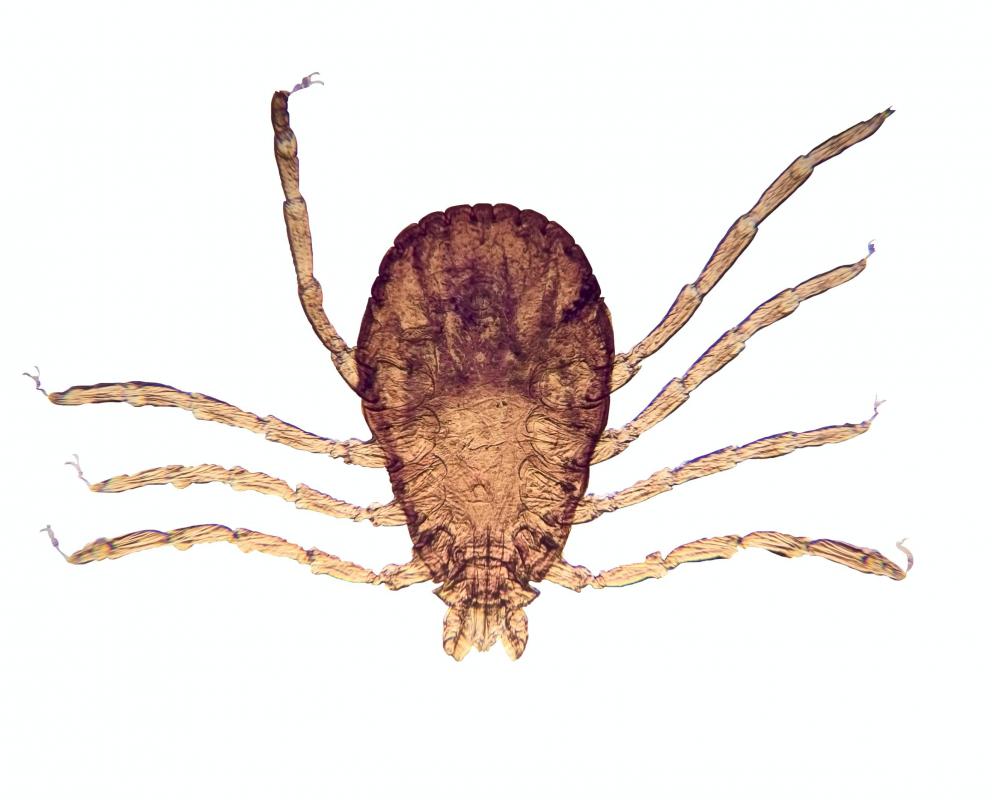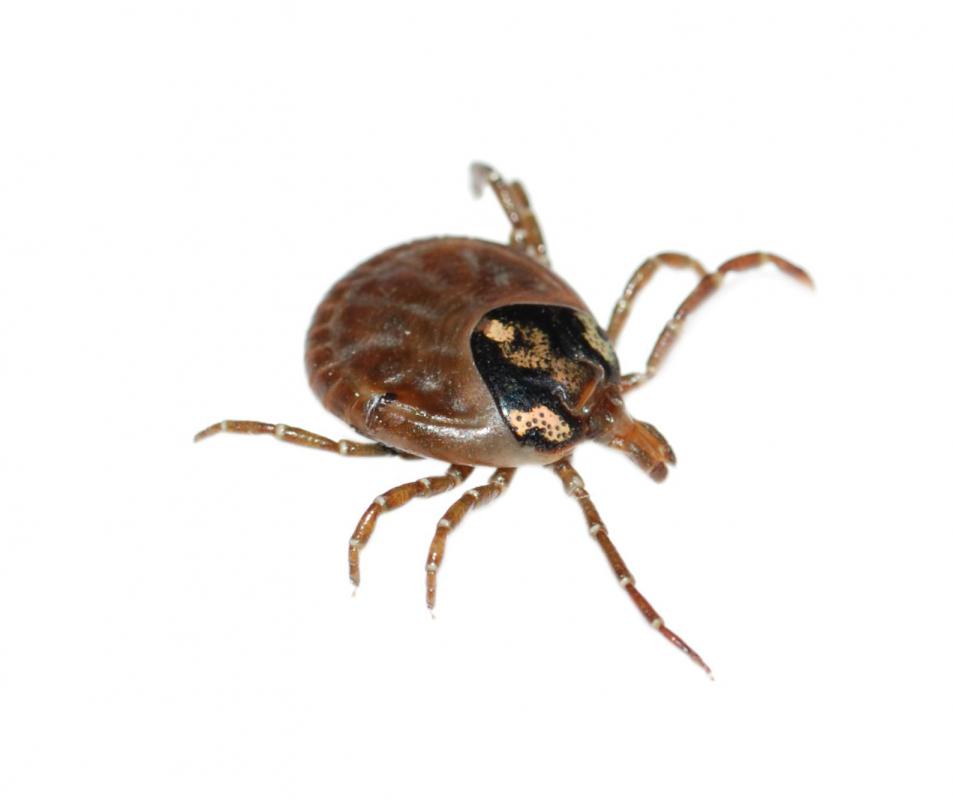At TheHealthBoard, we're committed to delivering accurate, trustworthy information. Our expert-authored content is rigorously fact-checked and sourced from credible authorities. Discover how we uphold the highest standards in providing you with reliable knowledge.
Should I Take Antibiotics if I Have a Tick Bite?
Certain ticks can transmit diseases to humans, which require antibiotic treatment. Most well known of these is Lyme disease, carried by ticks that are most often found on deer. Other conditions that ticks can pass to humans include Rocky Mountain spotted fever, babesiosis, ehrlichiosis, and Southern Tick Associated Rash Illness. Antibiotics can treat all of these conditions, with Rocky Mountain spotted fever having potentially the most fatalities when untreated. But in the world of ticks, only a handful of ticks will give you a bite that will transmit one of these diseases.
Many people believe they should be given antibiotics right away if they have received a tick bite. This may make sense if you live in an area where there is a proliferation of disease bearing ticks. Alternately if you can’t find the tick that bit you (most do stay attached), or you get a bite and your immune system is already impaired, it may make sense to start antibiotic treatment right away.

In most cases, the most sensible course if you get a tick bite, especially if you have the tick and remove it, is to have the tick tested for presence of disease. In a world where physicians are trying hard to not give antibiotics unless deemed medically necessary, there’s no point in starting antibiotics until you know whether a bite has put you at risk for infection. Another course you can take, particularly if you don’t have the tick but notice a bite, is to look for symptoms of illness within a few days after receiving a tick bite.

In almost all cases, tick borne diseases respond favorably to antibiotics when treatment begins right after symptoms are noted. If you develop any type of rash, flulike symptoms, fever, joint or muscle achiness, or nausea or vomiting and you know you’ve recently had a tick bite, see your doctor. Some conditions like Rocky Mountain spotted fever need to be treated right away, and some doctors may err on the side of caution and want you to be on antibiotics if you’ve had bites from ticks in areas where this disease exists.

Usually a tick bite is going to mean you won’t get any type of illness at all. However, if you’re concerned, it’s a good idea to speak with your doctor. When you can, having a tick tested is a way to bring peace of mind, and when this isn’t possible, merely keep an eye on yourself and contact a doctor if you have any of the above mentioned symptoms within a few days to a few weeks after having been bit by a tick. Lastly, if you develop these symptoms in geographical areas where these disease-bearing ticks exist, and you haven’t noticed a bite, you still may want to see a doctor. This is especially the case if you spend a lot of time outdoors in areas where such ticks are common, or if you have pets who go outdoors regularly. The occasional person doesn’t realize they’ve been bitten, although this is fairly rare.
AS FEATURED ON:
AS FEATURED ON:















Discussion Comments
Four years ago, I was bitten by a tick. I could not remove it, so I went to the emergency room at our local hospital. The doctor in emergency removed the tick, but he did not test the tick nor did he prescribe antibiotics and he did not mention follow up.
I've started having problems pain in my knees, neck, and eyesight. I had lab work it came back positive for lymes. What is my recourse?
"The occasional person doesn’t realize they’ve been bitten, though this is fairly rare."
This article ends with the most unscientific assertion. If a person does not know they had been bitten, then of course it would be rare, because you would never hear of it.
Today I saw a small blackish brownish color very small bug on my arm. I tried to pinch it off but then it seemed to grasp on to my skin. I ran into the bathroom to grab my tweezers and try to remove it. But by this time it was underneath my skin in my right arm.
I took the tweezers and tried to grab hold of it but was unsuccessful. I believe it is a tick. It looks like the ones I have seen in pictures and I am very worried about catching something serious from this tick.
I am calling my doctor in the morning. What else should I do?
I had African Tick Fever symptoms which subsided and the bite area is forming a scab after more than a week. Is the tick still present and needs to be removed as it cannot be seen?
Post your comments